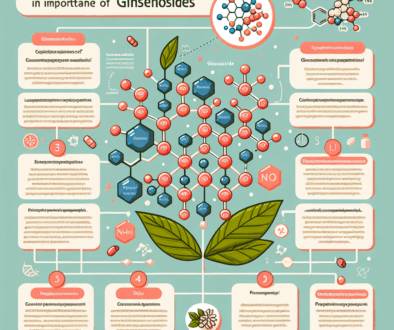Squalene vs Squalane: Key Differences Explained
-
Table of Contents
- Squalene vs Squalane: Understanding the Key Differences
- What is Squalene?
- What is Squalane?
- Comparing Squalene and Squalane
- Stability and Oxidation
- Moisturizing Effects
- Skin Absorption
- Sustainability and Ethical Considerations
- Applications in Skincare
- Choosing the Right Ingredient for Your Skin
- Conclusion: Embracing Plant-Derived Squalane
- Discover ETprotein’s Premium Protein Products
Squalene vs Squalane: Understanding the Key Differences

When it comes to skincare ingredients, the conversation often revolves around the benefits and uses of various compounds. Two such ingredients that frequently come up are squalene and squalane. While they may sound similar and are related in nature, their differences are significant in terms of stability, source, and use in skincare products. This article will delve into the key distinctions between squalene and squalane, providing valuable insights into their unique properties and applications.
What is Squalene?
Squalene is a naturally occurring lipid produced by all plants, animals, and humans. It is a polyunsaturated hydrocarbon that plays a crucial role in the synthesis of cholesterol, steroid hormones, and vitamin D in the human body. In skincare, squalene is valued for its moisturizing properties and its ability to help maintain a healthy skin barrier.
- Source: Squalene is most commonly derived from shark liver oil, but due to ethical and sustainability concerns, plant-based sources like olives, amaranth seeds, rice bran, and wheat germ are now more prevalent.
- Properties: It is an unsaturated oil, which makes it highly susceptible to oxidation when exposed to air and light. This can lead to a shorter shelf life and potential skin irritation if oxidized squalene is applied to the skin.
What is Squalane?
Squalane is the hydrogenated version of squalene. This means that it is a saturated compound, which makes it much more stable and less prone to oxidation. Squalane retains the beneficial properties of squalene but is more suitable for use in skincare formulations due to its longer shelf life and non-irritating nature.
- Source: Like squalene, squalane can be derived from shark liver or plant sources. However, the cosmetic industry predominantly uses 100% plant-derived squalane to avoid overfishing and to cater to vegan and cruelty-free product demands.
- Properties: Squalane is a lightweight, non-comedogenic oil that is suitable for all skin types. It is an excellent emollient, providing hydration without leaving a greasy residue.
Comparing Squalene and Squalane
Understanding the differences between squalene and squalane is essential for making informed choices about skincare products. Here are the key distinctions:
Stability and Oxidation
Squalene’s unsaturated nature makes it prone to oxidation, which can lead to rancidity and reduced efficacy. On the other hand, squalane is stable and resistant to oxidation, making it a more reliable ingredient in skincare formulations.
Moisturizing Effects
Both squalene and squalane are excellent moisturizers, but squalane’s stability means it can deliver consistent hydration over time without the risk of oxidation that could potentially irritate the skin.
Skin Absorption
Squalane has a lighter texture and is more easily absorbed by the skin compared to squalene. This makes squalane a preferred choice for leave-on skincare products.
Sustainability and Ethical Considerations
The shift towards plant-derived squalane addresses the environmental and ethical concerns associated with harvesting squalene from shark liver. Consumers are increasingly seeking out sustainable and cruelty-free skincare options.
Applications in Skincare
Both squalene and squalane have their place in skincare, but squalane’s advantages make it more common in a variety of products:
- Moisturizers: Squalane is a staple in face creams and body lotions due to its hydrating and non-greasy properties.
- Serums: Its fast absorption makes squalane an ideal ingredient in facial serums, where it helps to lock in moisture and restore skin’s suppleness.
- Lip Treatments: Squalane’s emollient qualities are beneficial in lip balms and treatments, providing long-lasting hydration and protection.
- Foundations and Primers: Squalane is often included in makeup products for its ability to create a smooth, hydrated canvas without clogging pores.
Choosing the Right Ingredient for Your Skin
When selecting skincare products, consider your skin type and concerns. If you have oily or acne-prone skin, squalane’s lightweight and non-comedogenic nature might be more suitable. For those with dry or mature skin, squalane’s hydrating and anti-aging benefits can be particularly advantageous.
Conclusion: Embracing Plant-Derived Squalane
In conclusion, while squalene and squalane share similar moisturizing properties, squalane’s stability, skin-friendliness, and ethical sourcing make it the superior choice for skincare formulations. As consumers become more conscious of the ingredients in their products, the demand for plant-derived squalane is likely to continue rising.
Discover ETprotein’s Premium Protein Products
After understanding the importance of choosing high-quality ingredients for skincare, it’s equally crucial to select the best nutritional components for your health. ETprotein offers a range of top-tier organic bulk vegan proteins and L-(+)-Ergothioneine (EGT) that cater to various industries. Their products are characterized by a neutral taste, non-GMO, allergen-free attributes, and high purity levels, ensuring that you receive only the best for your nutritional needs.
About ETprotein:
ETprotein, a reputable protein and L-(+)-Ergothioneine (EGT) Chinese factory manufacturer and supplier, is renowned for producing, stocking, exporting, and delivering the highest quality organic bulk vegan proteins and L-(+)-Ergothioneine. They include Organic rice protein, clear rice protein, pea protein, clear pea protein, watermelon seed protein, pumpkin seed protein, sunflower seed protein, mung bean protein, peanut protein, and L-(+)-Ergothioneine EGT Pharmaceutical grade, L-(+)-Ergothioneine EGT food grade, L-(+)-Ergothioneine EGT cosmetic grade, L-(+)-Ergothioneine EGT reference grade and L-(+)-Ergothioneine EGT standard. Their offerings, characterized by a neutral taste, non-GMO, allergen-free attributes, with L-(+)-Ergothioneine purity over 98%, 99%, cater to a diverse range of industries. They serve nutraceutical, pharmaceutical, cosmeceutical, veterinary, as well as food and beverage finished product distributors, traders, and manufacturers across Europe, USA, Canada, Australia, Thailand, Japan, Korea, Brazil, and Chile, among others.
ETprotein specialization includes exporting and delivering tailor-made protein powder and finished nutritional supplements. Their extensive product range covers sectors like Food and Beverage, Sports Nutrition, Weight Management, Dietary Supplements, Health and Wellness Products, and Infant Formula, ensuring comprehensive solutions to meet all your protein needs.
As a trusted company by leading global food and beverage brands and Fortune 500 companies, ETprotein reinforces China’s reputation in the global arena. For more information or to sample their products, please contact them and email sales(at)ETprotein.com today.












